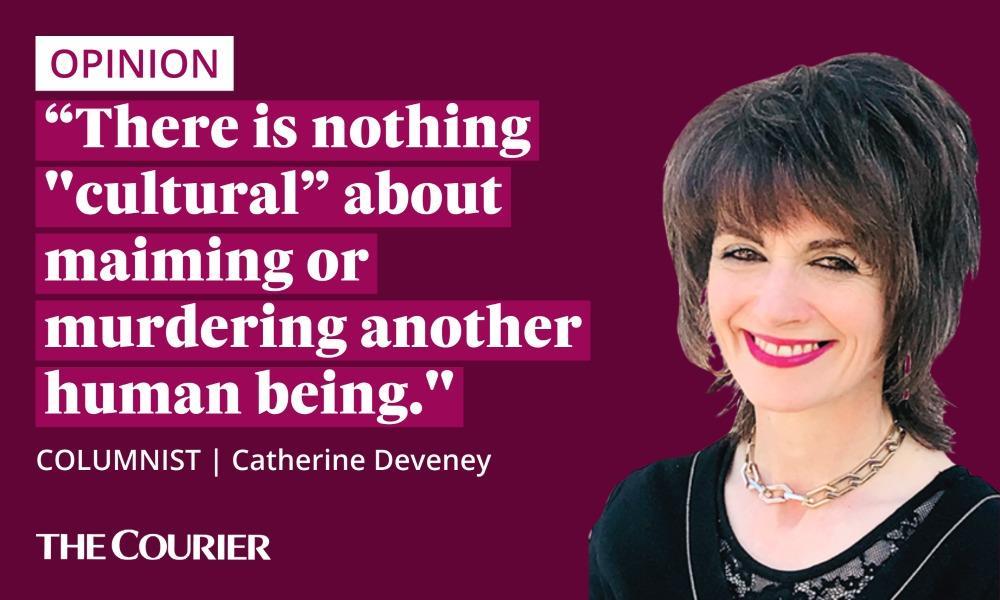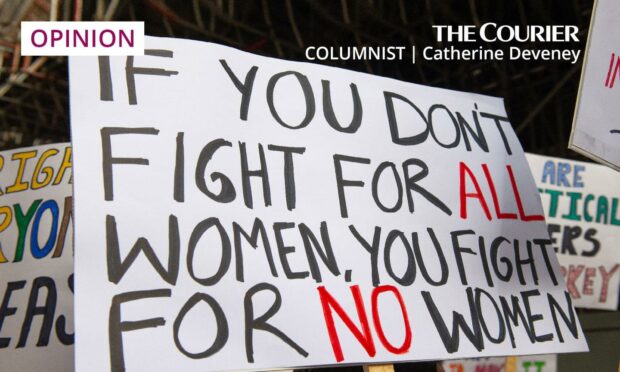Hard to imagine how the word “honour” ever got entangled with the word “violence”.
“Honour violence” involves murder, acid attacks, beatings, mutilation, and burning, which only sounds honourable if you’re Hannibal Lecter.
The victims are those who dare to exercise choice: who won’t marry the person their families want them to marry; or who divorce the person they want them to stay married to; or who behave in a way that supposedly compromises the family’s reputation and social standing.
It is a convenient euphemism.
Let’s call it what it really is: domestic abuse.

This week, figures were released showing reports of honour violence have increased by 81% in the last five years.
Yet public conversations about this issue are muted.
Why? Because there is a fear that calling out honour-based violence is a sign of racism.
Easier to look the other way, cough loudly over the screams, wrap the issue up in “cultural differences” surrounding honour and shame.
No such fear, of course, that not calling it out is a sign of misogyny.
The notion that this is not our culture and therefore not our business is a red herring.
There is nothing “cultural” about maiming or murdering another human being.
Last week, I suggested that things are moving backwards for women – not in hard legislative terms, but in societal attitudes.
This “don’t interfere in family affairs” response used to apply to all domestic violence cases.
What went on behind closed doors was the business of the man who owned both the door and any unfortunate female cowering behind it.
The police looked the other way.
Not now.
But the increase in violence against women, in so many different contexts, suggests attitudes are still stuck, like wheels spinning hopelessly in mud. It’s women who are getting splattered.
No moral motive for ‘honour’ killings
Objecting to the word “honour” is not quibbling over petty semantics.
Language reveals attitudes.
Referring to “honour” killings somehow implies a moral motive for the crime; an insidious justification for the unjustifiable.
It perpetuates notions of shameful, wayward behaviour, as if your relative not doing what you want them to is somehow mitigation for murder, in the way self-defence or insanity might be.
The truth is that honour violence is usually cold blooded and premeditated, and is perpetrated predominantly on those regarded as family property: women and girls.
In India, cases of in-family violence have been dismissed by the authorities as “suicide” or “accidents” to avoid investigation – an unspoken acceptance that “these things happen”.
In Jordan, honour violence is actually legal or, in certain circumstances, lightly penalised.
My amazing #feminist sisters in #Jordan calling for a feminist revolution against #patriarchy 💪 This year 11 Jordanian citizens have died with #Covid_19, while 9 #women have been killed due to domestic violence! @abuzaineddin@reem76539 #صرخات_احلام #صرخات_الاردنيات #وقفة_للنساء pic.twitter.com/CQZiOevcLv
— Hayat Mirshad (@HayatMirshad) July 22, 2020
But we’re not just talking “abroad” or “over there” or “somewhere else”. We’re talking about violence towards our own citizens.
Money to be made from abuse
This week’s news about the huge increase in honour killings was accompanied by another, related story.
It was about a surge in hymenoplasty operations in Britain: surgery to “restore virginity”.
Good luck with that one, Harry Potter. That’s magic, not medicine.
The idea is to stitch the hymen to increase the bride-to-be’s chance of bleeding on her wedding night, despite bleeding being a highly unreliable indicator of virginity.
Have you seen Britain's 'Virginity' Clinics Uncovered yet? IKWRO worked on this documentary as part of our #VirginityDoesNotDefineMeCampaign & it clearly demonstrates why the gov must #BanVirginityTests & #BanHymenoplasty & make safeguarding the priority https://t.co/RnBn2QZrDB
— IKWRO (@IKWRO) November 3, 2021
“Doctors are exploiting women’s fears and charging huge fees for this harmful practice,” said a spokeswoman for Ikwro, the Iranian and Kurdish Women’s Rights Organisation, which is calling for a ban.
The surgery “often fails to make the woman bleed, placing her at extreme risk of ‘honour’-based abuse or even ‘honour’ killing.”
In a survey of nine London pharmacies for an ITV documentary, five were willing to offer hymenoplasty – or at least provide a contact who could perform it – even when one reporter, posing as a domineering mother, said her daughter wasn’t being cooperative. The pharmacy took the money anyway.
Surgeons are making between £2,000 and £3,000 pounds per procedure – a situation that Ikwro says should prompt a national strategy on honour-based violence, covering not just policing, but also community education.
Not cultural but a crime
The law no longer considers female genital mutilation a cultural practice. It’s a crime.
Forced virginity testing and hymenoplasty are part of the same problem.
These “honour” assaults have all the usual cross-cultural ingredients of crime.
Coercion. Control. People prepared to make money out of misery. People frightened to speak out because of fear and shame.
Confusing criticism of this with racism doesn’t wash.
Nor does confusing it with notions of morality that it does not merit.
This has nothing to do with honour. It has everything to do with human rights.
